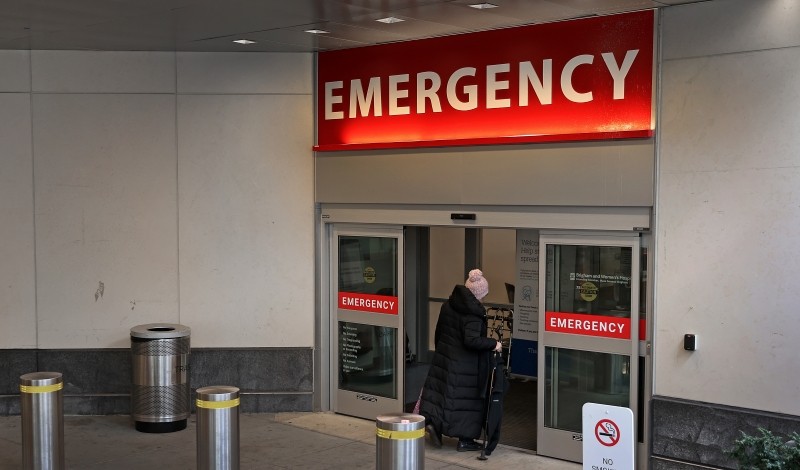
Legislators must come together to protect pregnant patients who miscarry.
When Nevaeh Crain realized she was having a miscarriage, she went to three Texas hospitals seeking emergency care. The second hospital diagnosed her with sepsis, but doctors discharged her because the fetus still had a heartbeat. At the third hospital, an obstetrician required her to undergo two ultrasounds, taken hours apart, to allegedly “confirm fetal demise.”
Nevaeh died before receiving miscarriage treatment.
In response to the U.S. Supreme Court’s decision to overturn the constitutional right to obtain an abortion, activists warned that the consequences of abortion restrictions would be far-reaching. The Human Rights Watch explained that restrictions would increase difficulty in accessing health care to treat miscarriages and ectopic pregnancies, delay hospitals in providing care out of fear of criminal or professional penalties, and reduce access to other forms of health care.
Years after this decision, one scholar allegedly noted that “pregnant women have become essentially untouchable.”
About one in four pregnant patients will experience a miscarriage. In 59 percent of miscarriages, pregnancy tissue does not completely pass at once. These cases often require abortion treatments.
Miscarriage treatments are low-risk. If left untreated, however, an incomplete miscarriage can lead to sepsis—–the life-threatening condition that Nevaeh experienced.
The standard of care for treating miscarriages depends on patient preference and medical circumstances. In some cases, a patient can wait for the miscarriage to progress naturally. In these cases, it may take days or weeks until the patient has fully miscarried. Other patients may choose—–or need to undergo–—medical or surgical treatment. Mifepristone and misoprostol are commonly prescribed together to help a patient pass pregnancy tissue within a few hours. In certain cases, especially those in which the patient is experiencing heaving bleeding or signs of infection, a dilation and curettage is necessary.
Medication and surgical treatment for miscarriages are, by definition, abortion care. Consequently, women in states with severe abortion restrictions face challenges in accessing lifesaving and health-saving care.
Anti-abortion advocates argue that all abortion restrictions currently contain exceptions for when the life of the mother is in danger. Therefore, theoretically, there should be no barriers to doctors providing miscarriage treatment. They maintain that it is medical malpractice, not legislation, that results in barriers to accessing miscarriage care.
Medical professionals, however, warn that the vague and imprecise language in abortion restrictions leaves providers, patients, and hospitals confused and afraid to act until their patient is near-death. Consequently, physicians feel “caught between good medicine and bad law.”
As the legal landscape involving reproductive health care evolves, it is essential that legislators recognize and respond to the downstream effects that abortion bans have on patients seeking miscarriage care.
On the federal level, the U.S. Department of Health and Human Services (HHS)’s interpretation that the Emergency Medical Treatment and Labor Act (EMTALA) currently requires hospitals to provide abortion care in cases of medical emergencies for which such care is the medical standard of care. Congress passed EMTALA to ensure that hospitals provide emergency medical care to all patients regardless of their ability to pay. Under HHS’s recent interpretation of EMTALA, states cannot enforce abortion bans with narrower restrictions than EMTALA’s mandate that physicians treat patients with emergency medical conditions. This interpretation of EMTALA should be maintained.
The future of EMTALA remains uncertain. Multiple pending lawsuits allege that EMTALA does not preempt state abortion bans. The Supreme Court recently declined to provide clarity on this issue in Moyle v. United States. Furthermore, advocates expect the future Trump Administration to interpret EMTALA in a way that does not require hospitals to provide emergency abortion care. This change would remove agency authority to enforce the law when patients are denied life-saving abortion care. Therefore, it remains to be seen whether EMTALA will be a plausible protection for pregnant patients.
The U.S. Food and Drug Administration (FDA)’s approval of mifepristone also faces attacks. In FDA v. Alliance for Hippocratic Medicine, the Supreme Court overruled a district court order–—which required mifepristone to be taken off the market–––on procedural grounds. Although this decision ensured that access to mifepristone is not in immediate danger, the Court left the door open for future challenges to FDA’s approval of the drug.
If FDA’s approval of mifepristone—–a drug with a high safety record—–is successfully challenged in court, or if FDA decides to rescind its approval, patients who experience a miscarriage would be left with fewer treatment options.
With the future of federal abortion protections in danger, it is important for states to take efforts to ensure that reproductive health care is available for all, including patients who experience a miscarriage. In the 2024 election, citizens in 10 states voted on ballot initiatives to enshrine abortion rights in the state’s constitution. Seven of these initiatives passed. These protections are a positive step toward protecting pregnant patients.
At minimum, state legislators should acknowledge inconsistencies between the allegedly intended and the actual consequences of abortion bans, and work to rectify the harms that abortion bans cause. 86 percent of Americans support abortions in cases of pregnancy-related emergencies. Legislation, however, remains too narrow to protect patients who experience these emergencies.
These inconsistencies could be driven by confusion surrounding what state abortion laws mean—–55 percent of adults are unsure or incorrect about whether medication abortion was legal in their state. Furthermore, 81 percent of Americans did not know that medication abortion pills can be used to treat a miscarriage. Legislation should be revoked or amended to provide more clarity for physicians and patients, and physicians should be permitted to provide standard-of-care treatment without fear of punishment.
Ultimately, a decision of what type of miscarriage treatment to undergo should remain between the patient and their doctor, not in the hands of legislators. Until policymakers take action to protect patients and providers, pregnant people will continue to be overlooked and will suffer preventable consequences and deaths.



